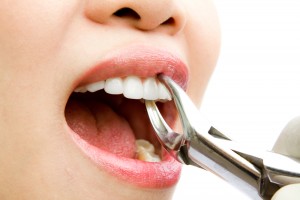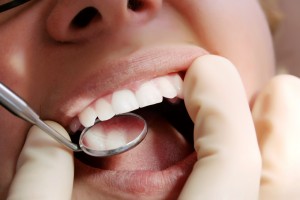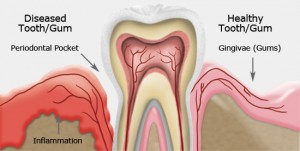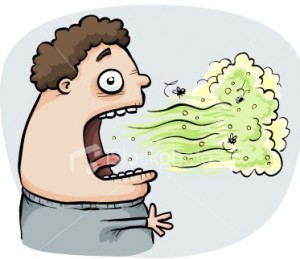
If your mouth feels like there’s cotton in it, and you’re having trouble swallowing, you’re experiencing dry mouth. Dry mouth has several different causes, and it’s important to determine the cause so that you can effectively treat it.
Symptoms of dry mouth include a cotton-like feeling in the mouth, dry throat, hoarseness, a dry, raw, red tongue, sores in the mouth or on the corners of the mouth, problems speaking, difficulty swallowing or tasting, and/or bad breath. A tingling or burning sensation on the tongue or in the mouth, frequent thirst, and dry nasal passages are also symptoms of dry mouth.
There are several possible causes of dry mouth. For instance, dry mouth is a common side effect of some over-the-counter and prescription medications. Specifically, medications utilized in the treatment of anxiety, depression, Parkinson’s disease, pain, epilepsy, nausea, psychotic disorders, acne, urinary incontinence, diarrhea, and obesity commonly cause dry mouth. Additionally, antihistamines, decongestants, diuretics, and bronchodilators may cause dry mouth. Continue reading →

Bleeding gums happen to about three quarters of American adults over the age of 35. Bleeding gums should definitely not go unnoticed and should be cared for and treated by a dentist as soon as possible. There are many reasons why your gums may bleed and it could result in something simple to treat or it may be something more serious that only a dentist can fix. Here are some examples of why your gums may be bleeding.
Inadequate oral hygiene
This is a very common reason for gums to bleed. If you are not brushing and flossing enough or as well as you should, tarter and plaque can get stuck in between your teeth and cause major bacteria to grow which then causes your gums to swell and bleed. Even if you feel you brush often but don not take the time to floss daily, this can really cause havoc to your gums. Make it a commitment to brush and floss daily because healthy gums can become diseased within a 24-36 hour period from bacteria. Continue reading →

Numerous studies have established the toxic consequences of smoking on your general health. Smoking is the chief cause of lung cancer. According to the American Cancer Society, smoking will cause nearly 87 percent of lung cancer deaths, and tobacco use accounts for almost one in three cancer deaths. Cigarette smoking raises your chances of having a stroke or heart attack. Smoking while pregnant also ties to an increased risk of early delivery, birth defects and infant death. Still, these associations probably are not news to you.
However, did you know that smoking and other tobacco use also have a vastly negative effect on your oral health? Smoking has a distinctively harmful impact on oral health, from superficial issues to disturbingly deep-rooted dental problems. Continue reading →

Roseville is one of the best places to shop in California, but you cannot buy an easy cure if smoking has hurt your health. If you are a current or former smoker, you will probably have dental problems in the future. Some problems may be minor, but smokers are at risk for oral cancer and loosing teeth. Understanding how cigarettes hurt your mouth can help determine how many teeth you may lose and what else you might encounter.
How Does Smoking Hurt My Teeth?
The ingredients in tobacco destroy the cells in your body, which hinders blood flow, damages gum tissue and lowers your immune system. This makes it hard to fight the large amount of plaque a smoker has, and the plaque causes recession of the gums, bone detachment and infections. Continue reading →

For those who do not usually experience any dental issues, the temptation to skip a routine dental exam can be huge. After all, if your last filling was done in the 90s and you’re not experiencing any issues, you may think there is no reason to keep your routine dental appointments. However, this kind of thinking can prove very dangerous because each checkup includes a routine oral cancer screening. There are three main reasons why this is a screening you absolutely cannot afford to miss.
Some forms of oral cancer are extremely aggressive. As with any cancer, early detection is paramount to surviving the diagnosis. The longer oral cancer remains undetected, the longer is has to grow and move into nearby tissues such as the brain, eyes and throat. Oral cancer is best discovered early to increase the odds of survival and lessen the chances of it metastasizing to surrounding tissues. Early detection is key to saving your life and achieving remission. Continue reading →

The term gum disease refers to the infection of bones and tissues surrounding the teeth. The disease starts with mild growth of bacteria inside the mouth that may eventually lead to loss of teeth without proper treatment. According to the National Institute of Dental and Craniofacial Research, many adults in America suffer from some form of the disease. Which are the main types of gum disease?
There are primarily two types of gum disease that may range from simple inflammation of the gums to severe damage of the bones and tissues supporting the teeth, leading to loss of the teeth. The services of an emergency dentist, therefore, come in handy in treating the disease and stopping further damage.
The mouth is full of bacteria that combine with different things, including mucus, to form a colorless and sticky matter on the teeth known as plaque. Continue reading →











